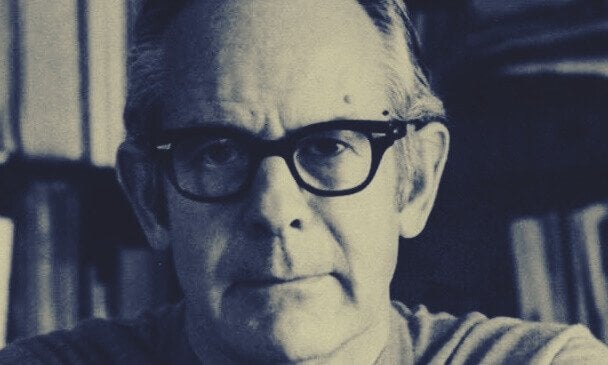Rollo May is one of the figures of psychology that represents an interesting nuance of different currents, although sometimes associated with humanist psychology or even psychoanalysis, it must actually be observed as an existentialist psychology, it is a very striking effect in which philosophy and psychology combine.
Rollo May was born in Ohio, USA, in 1909, and died in San Francisco in 1994. Su a middle-class family and lived in an environment that was defined as anti-intellectualist, opposed study and science.
- His parents separated when he was in elementary school.
- His sister had a nervous breakdown and May had to interrupt his studies and go home to take care of his mother.
- Sister and younger brother.
“It’s an ironic habit for humans to run faster when they’ve strayed. “May Roll?
All this left a deep mark on the psyche of Rollo May, who fell into deep depressions several times throughout his life, he moved to Greece at the end of his studies, there he allowed himself to be persuaded by the philosophical spirit and, since then, the philosophy has begun. be one of your biggest concerns.
On his return from Greece, immersed in one of his depressive phases, he joined the United Theological Seminary in New York. His intention was not necessarily to become a priest.
He simply saw that it was an appropriate place to think about the issues that worried him, especially suicide, despair and anxiety. At the time, psychology did not pay much attention to these issues.
During this seminary he met the theologian Paul Tillich, with whom he struck up a long-standing friendship, was unlucky enough to get tuberculosis, so he dropped out of school and was taken to a sanatorium, where he remained for more than three years. .
During his recovery, he had the opportunity to make some readings that marked him forever, in particular freud’s entire work and, in particular, the books of Soren Kierkegaard, the father of existentialism, who, while appreciating the contributions of psychoanalysis, concludes that existentialism best expresses what human beings have experienced in crisis.
From this long recovery of tuberculosis arises a new Rollo May that, after healing, left the sanatorium and returned to New York to complete his theological studies in 1938, soon decided to study psychoanalysis and then received his doctorate in psychology at the University. Columbia.
Rollo May was also interested in humanist psychologists. Apart from his readings and reflections, he was able to structure what existentialist psychology would be, which was based mainly on four pillars:
As an existentialist psychologist, Rollo May’s central theme in his analysis was the meaning of existence and freedom, and proposes that human beings must constantly face the dilemma of being objected to and subjected to at the same time. An object because the actions of others fall. and subject because he’s also an active agent in the face of his reality.
He sees conflict as the fundamental essence of life, the mere fact of existing already proposes a series of conflicts that are never solved at all, is not something external, but something that is in us, are not negative, but a condition of existence. Itself.
The existential psychotherapy proposed by Rollo May is a process in which the existence of this individual who seeks help is studied, what he seeks are the main concerns that afflict him, which are analyzed from dialogue, the objective is to identify prejudices and detect ways of acting that have negative effects. This psychotherapy does not necessarily lead to well-being, but to a more rational way of coping with life.

